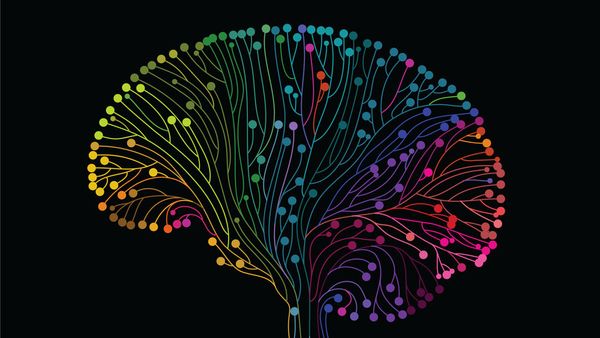
Why ‘Zombies’ Cause Problems for Brain Science and Consciousness
Philosophical 'zombies' are a thought experiment designed to illuminate problems with the science of the brain. This article introduces your zombie twin — an identical, non-conscious version of you.

Imagine you have an identical twin. Not just a genetic match, but an exact physical replica — an atom for atom clone. Your twin looks like you, sounds like you, smells like you — and every neuron in his or her brain is exactly the same as yours. Despite these overwhelming similarities, however, there is one important difference.
Your twin doesn't experience anything. They have no 'inner' conscious life.
Your twin is what philosophers in the field of consciousness refer to as a ‘philosophical zombie’.
Philosophical zombies aren’t the shuffling, withered kind of zombies you see in TV shows or films, but rather perfect biological replicas of humans that lack conscious experience.
So while your zombie twin's brain activity is identical to yours, they have no awareness of their awareness. Beyond the electrical processes occurring in their brain, there is nothing going on 'inside'.
If you punch your zombie twin they’ll wince or cry out, the c-fibres in their somatic sensory system will be stimulated — designating pain — but they will not experience this process of pain. And when afterwards they demand to know why you lashed out, they'll have as much conscious awareness of doing so as a kettle being conscious of boiling.
Exploiting the gap between consciousness and brain activity
Could such zombies exist? Probably not. But the fact these imaginary beings are even conceivable to us indicates a significant explanatory gap between consciousness and brain activity, so think philosophers of consciousness like David J. Chalmers.

In his book The Conscious Mind, Chalmers argues that if describing brain activity was sufficient for providing a complete explanation of consciousness, then zombies would be inconceivable. The idea of them would make no sense to us, because it would be impossible to think about brain processes and their corresponding experiences coming apart — even conceptually.

From the Buddha to Nietzsche: join 20,000+ subscribers enjoying my free Sunday Breakdown
In one concise email each Sunday, I break down a famous idea from philosophy. You get the distillation straight to your inbox.
💭 One short philosophical email each Sunday. Unsubscribe any time.
So, that zombies are conceivable is a big deal. It indicates that understanding brain activity brings us no closer to understanding how or why consciousness emerges the way it does.
Brain science doesn’t tell us how or why consciousness arises — or even what it's for
Take vision. We have explanations for how our eyes capture light but not for 'why' this process is accompanied by an experience of 'seeing'. When we look at things, light passes through our pupils to the retina, where it's converted into electrical signals and processed in the brain's visual cortex. This seems like a nice, complete system for an organism that needs to navigate.
So why must this biological function, this whirring of electrical activity, be accompanied by an awareness of the information our eyes and brains process? Our brains have already bagged the information — so what purpose does this seemingly extraneous conscious experience serve?

On that note, what purpose does any conscious experience serve? Why did consciousness arise in the first place? Does it have utility, or is it a mere evolutionary by-product? What makes us different from our zombie twins?
These are the undesirable questions that zombies, exploiting the explanatory gap between brain activity and consciousness, force us to ask.
Are zombies really worth taking seriously?
Zombies show that reconciling brain activity with consciousness is a problem — a problem that requires more, Chalmers thinks, than neuroscientific research to solve.
For Chalmers, the way we currently approach brain science will never lead to a satisfactory explanation of how consciousness emerges because our conceptual framework is too limited.
Instead, he calls for a radical rethink that places consciousness alongside quantum fields as a fundamental building block of the universe. In his view, there is no other way to adequately explain it.
Of course, there are many who find zombies absurd. Daniel Dennett argues that zombies are ultimately inconceivable: they're based on the assumption that brain activity and consciousness can come apart, which is an illusion we'll one day prove to be impossible. An explanatory gap doesn't entail an actual gap, we just need to continue our neuroscientific research. (Consider, for instance, Douglas Hofstadter on how mental properties emerge from complex patterns in the brain)
Zombies are just a small part of Chalmers’s argument as to why he thinks the gap between consciousness and brain activity is currently unbridgeable. For a more in-depth discussion of his thoughts, as well as responses to them, check out our consciousness explainer.
Alternatively, to dive even deeper on the nature of consciousness, our curated reading list outlines the most compelling and comprehensive works in the field. Hit the banner below to access it now.

Consciousness
The Top 5 Books to Read
About the Author

Get one mind-opening philosophical idea distilled to your inbox every Sunday (free)

From the Buddha to Nietzsche: join 20,000+ subscribers enjoying a nugget of profundity from the great philosophers every Sunday:
★★★★★ (100+ reviews for Philosophy Break). Unsubscribe any time.

Take Another Break
Each break takes only a few minutes to read, and is crafted to expand your mind and spark your philosophical curiosity.





